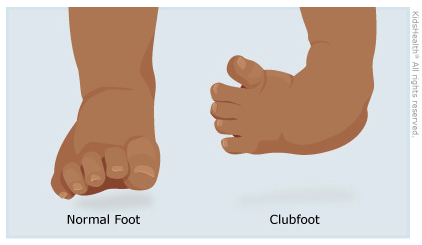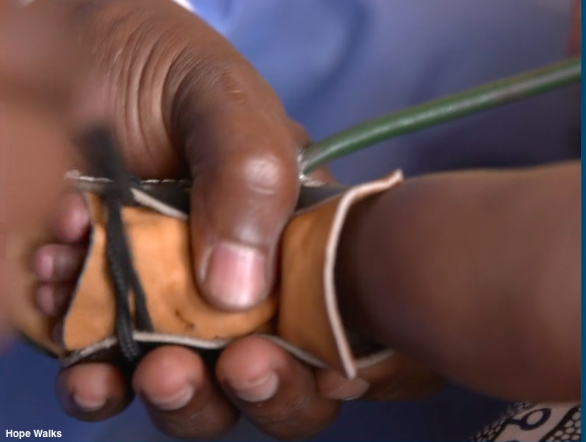January is Human Trafficking Prevention Month: Part 1 By Shellie Velasco, Program Officer [As we start the…
World Clubfoot Day June 3
Honoring Dr. Ponseti and Spreading Awareness
Several years ago, June 3 was selected as World Clubfoot Day in honor of Dr. Ignacio Ponseti, who developed the minimally invasive clubfoot-correction technique of casts and braces.
Organizations like Hope Walks are using the day to raise awareness of clubfoot and to educate parents of children with the condition. Hope Walks has even developed a video series, in partnership with Medical Aid Films, that will be used to educate parents, clinicians and parent advisors.
This film provides an overview of clubfoot, also known as Congenital Talipes Equinovarus, and how easily and effectively it can be treated. It is intended to be used to raise awareness about clubfoot and its treatment for potential patients, families, the general public and health community (Video Credit: Hope Walks Website).
What is Clubfoot?
 Clubfoot is the most common foot deformity. It is caused by a shortened Achilles tendon that twists the foot downward and inward, which makes walking difficult or impossible. If left untreated, clubfoot leads to a lifetime of disability. However, if clubfoot is treated early, children can walk and function normally.
Clubfoot is the most common foot deformity. It is caused by a shortened Achilles tendon that twists the foot downward and inward, which makes walking difficult or impossible. If left untreated, clubfoot leads to a lifetime of disability. However, if clubfoot is treated early, children can walk and function normally.
It is unknown why this birth defect occurs. According to John Hopkins, clubfoot effects approximately one in every 1,000 live births with half of the cases involving only one foot.
500 children are born with clubfoot each day. But thanks to organizations like Hope Walks, most of these children are successfully treated and go on to live full lives.
In some places when a child is born with clubfoot or another disability, the child, mother and family are seen as cursed, according to Hope Walks. The child may be abandoned or killed, and the mother thrown out of her house or community. Hope Walks endeavors to address these stigmas associated with clubfoot by educating doctors, parents and communities.
The Ponseti Method
The world standard for treating clubfoot is known as the Ponseti Method, named for Dr. Ignacio Ponseti, who developed the technique.
The Ponseti Method is a two-step solution for children under the age of two and works best if started at birth. The Method uses a series of casts and braces to non evasively correct the foot’s alignment giving the child the ability to walk normally.
The first stage of the method involves making an incision to lengthen the Achilles tendon then manipulating and casting the foot in a fixed position. This gradually moves the foot into the correct position over four to six weeks.
The second stage requires children to wear corrective braces, called Foot Induction Braces, which seek to hold the foot in the corrected position and maintain that correction over time so that the clubfoot does not come back. Initially children are required to wear the braces 23 hours per day for two to three months. The time in braces is then reduced to nighttime only for three to four years, and eventually no brace is needed.
About Hope Walks
Dr. C. Scott Harrison founded CURE International in 1996 after his tenure as CEO of an international manufacturer of orthopedic products. CURE opened hospitals in low- and middle-income countries to address the need for specialized pediatric orthopedic surgery as a way to treat correctable physical disabilities.
After years of success, it was decided that Hope Walks would split from CURE International in order to pursue more opportunities focused on clubfoot across the globe. In July of 2018, Hope Walks incorporated with financial support from CURE.
Motivated by their hope in Christ, Hope Walks frees children, families and communities from the burden of clubfoot. Hope Walks is currently in 17 countries and partners with 136 clinics. Hope Walks reported that 5,775 individuals were “walking free” in 2019 alone.
The Rees-Jones Foundation is a proud supporter of Hope Walks and CURE International.
Share this post:
Category: Original Content
Welcome to 2025 By Adrian Cook, Director of Research & Evaluation “But the steadfast love of the…



